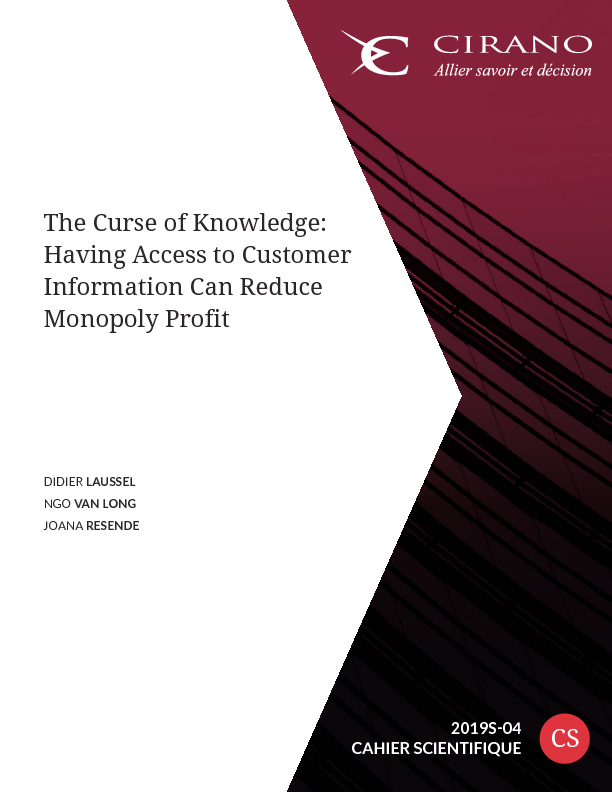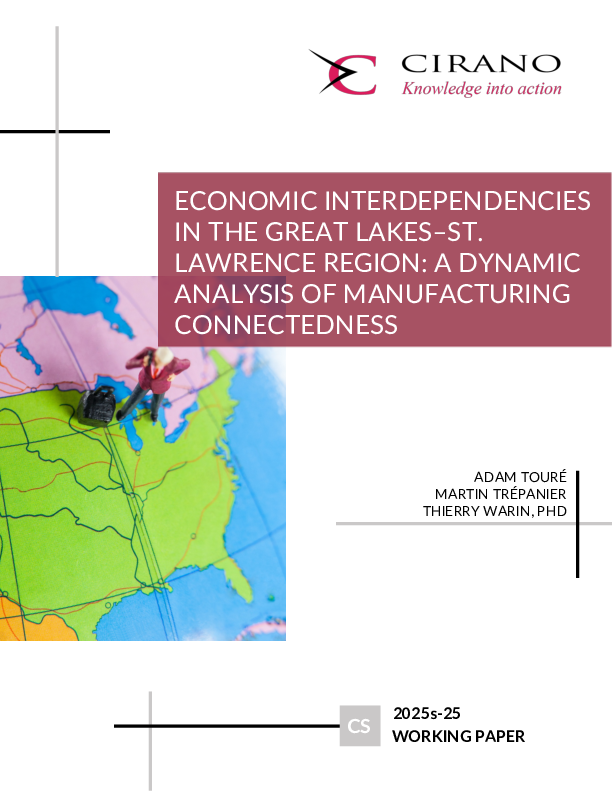The Curse of Knowledge: Having Access to Customer Information Can Reduce Monopoly Profit
We demonstrate the "curse of knowledge" when a monopolist can recognize different consumer groups through their purchase histories which are influenced by its dynamic pricing policies. Under the Markov-perfect equilibrium, after each commitment period, the firm offers a new introductory price so as to attract new customers. More and more market segments are added gradually. Eventually, the whole market is covered. Shortening the commitment period will result in a fall in profit. In contrast, a full-commitment monopolist would choose to stick to uniform pricing, achieving higher profit. Hence, the firm is better off by refraining from collecting customer information.




